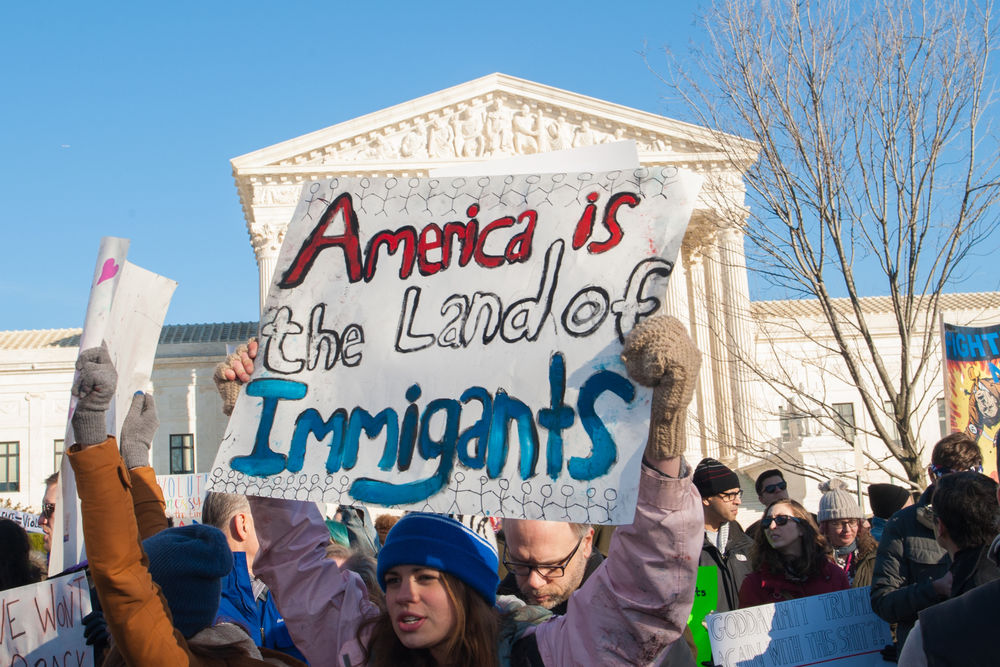Faced with the difficult decision of what to do about DACA and DAPA, the Trump administration split the baby.
The good news: This seems like a fairly reasonable approach. The acronyms may sound the same but the programs they represent are actually quite different. And the flawed one shouldn’t be allowed to drag down the beneficial one.
The bad news: These quick fixes are Band-Aids on bullet wounds. And Americans will continue to wade through this confusing alphabet soup of bureaucratic remedies until Congress and the White House deliver meaningful immigration reform.
DACA stands for Deferred Action for Childhood Arrivals. It came to fruition in 2012, when President Obama — facing a stiff re-election challenge from Republican nominee Mitt Romney, and having suffered a dramatic drop in Latino support — proposed an executive action that would let young undocumented immigrants who were brought here as children by their parents apply for a two-year deferred action. During that time, they couldn’t be deported, but they could gain a temporary work permit. Currently, DACA protection has been extended to about 750,000 people.
Almost since the moment the exemption for the young and undocumented kicked in, folks asked: “What about the parents?”
DAPA refers to Deferred Action for Parents of Americans and Lawful Permanent Residents. While it was challenged in court immediately after being unveiled in 2014, blocked by injunctions and never implemented, it intended to grant deferred status to undocumented immigrants who had lived in the U.S. since 2010 and had children who were either U.S. citizens or lawful permanent residents. Whereas DACA offered a two-year deferment, the work permits under DAPA were supposed to last three years. Finally, DAPA was estimated to protect as many as 5 million undocumented immigrants.
Here’s the major difference between the two programs:
DACA drew strength not just from the fact the beneficiaries were portrayed as hardworking and upstanding scholarship students, but also from the underlying argument that these young people had done nothing wrong. They were dragged here, we were told. In fact, many of them probably wanted to stay in their home countries, but their parents wouldn’t allow it.
On the other hand, DAPA was all about helping lawbreakers, enabling full-grown adults — scores of them — who knew the rules and should have understood the price for breaking them. Supporters couldn’t argue that recipients didn’t know what they were doing in coming to the U.S. without documents, or that they were forced to violate U.S. immigration laws.
Right-wingers wanted both programs struck down; left-wingers wanted them both preserved.
In the end, Homeland Security Secretary John Kelly announced that the administration was keeping DACA but dumping DAPA in a “house cleaning.”
The program for parents proved to be a bridge too far and the legal challenges were ultimately too much to overcome. The silver lining seems to be that, now that it has been upheld by both Democratic and Republican administrations, DACA is likely to be around for a long time.
Which means that something else will be with us for a while as well: guilt. It was guilt — specifically survivor’s guilt — that drove DACA recipients into the streets clamoring that the protections they were enjoying be extended to their parents.
DAPA didn’t quite get them as far as they wanted to go. To qualify, parents would have had to have children who were U.S. citizens or lawful permanent residents. That left out the so-called DREAMers who benefit from DACA protections and who describe themselves as “DACAmented.”
Ah, but what about the DREAM Act, which arguably started all this? Proposed in the Senate way back in 2001, that bill was also exclusionary and elitist. It offered legal status and a pathway to citizenship for those undocumented young people who joined the military or completed a four-year degree. If you went to a two-year community college or a trade school or straight into the workforce after high school, you were out of luck.
That didn’t seem to bother anyone at the time. For a while there, it seemed that those undocumented young people were believing their own press clippings about how special they were. Many of them began to see themselves as entitled to this wonderful gift that lawmakers were seeking to bestow upon them. And they didn’t raise a fuss about the fact that their own parents and siblings were not being given the same break.
Now we’re back where we started. Those people who felt fine with being part of the select few before have little room to complain. And, as I said, we’re going to continue to play this game until Congress and the White House stop toying with temporary fixes and deliver real reform.
Ruben Navarrette is a syndicated columnist with The Washington Post Writers Group, a member of the USA Today Board of Contributors, a columnist for the Daily Beast and author of “A Darker Shade of Crimson: Odyssey of a Harvard Chicano” (Bantam).

